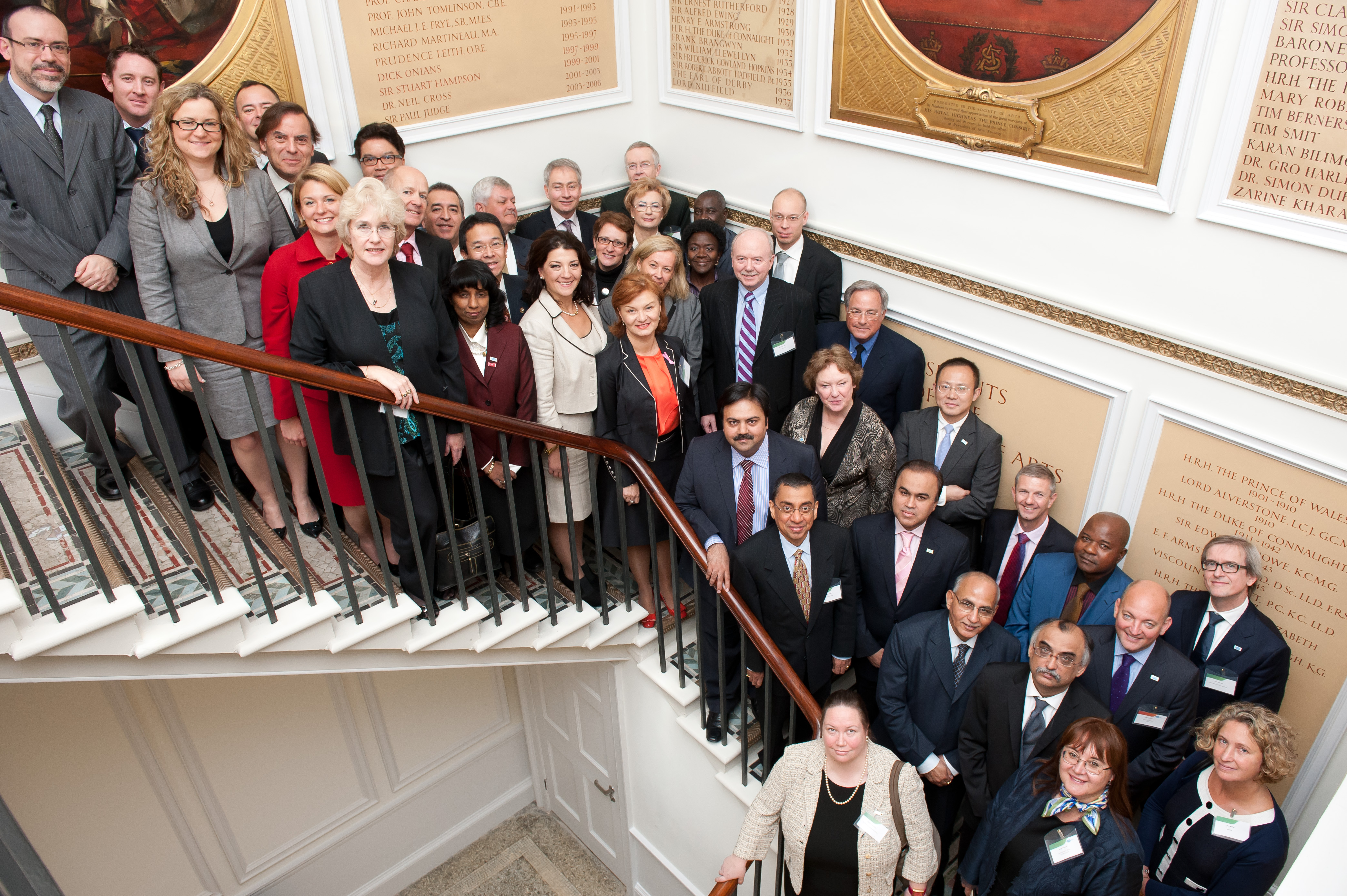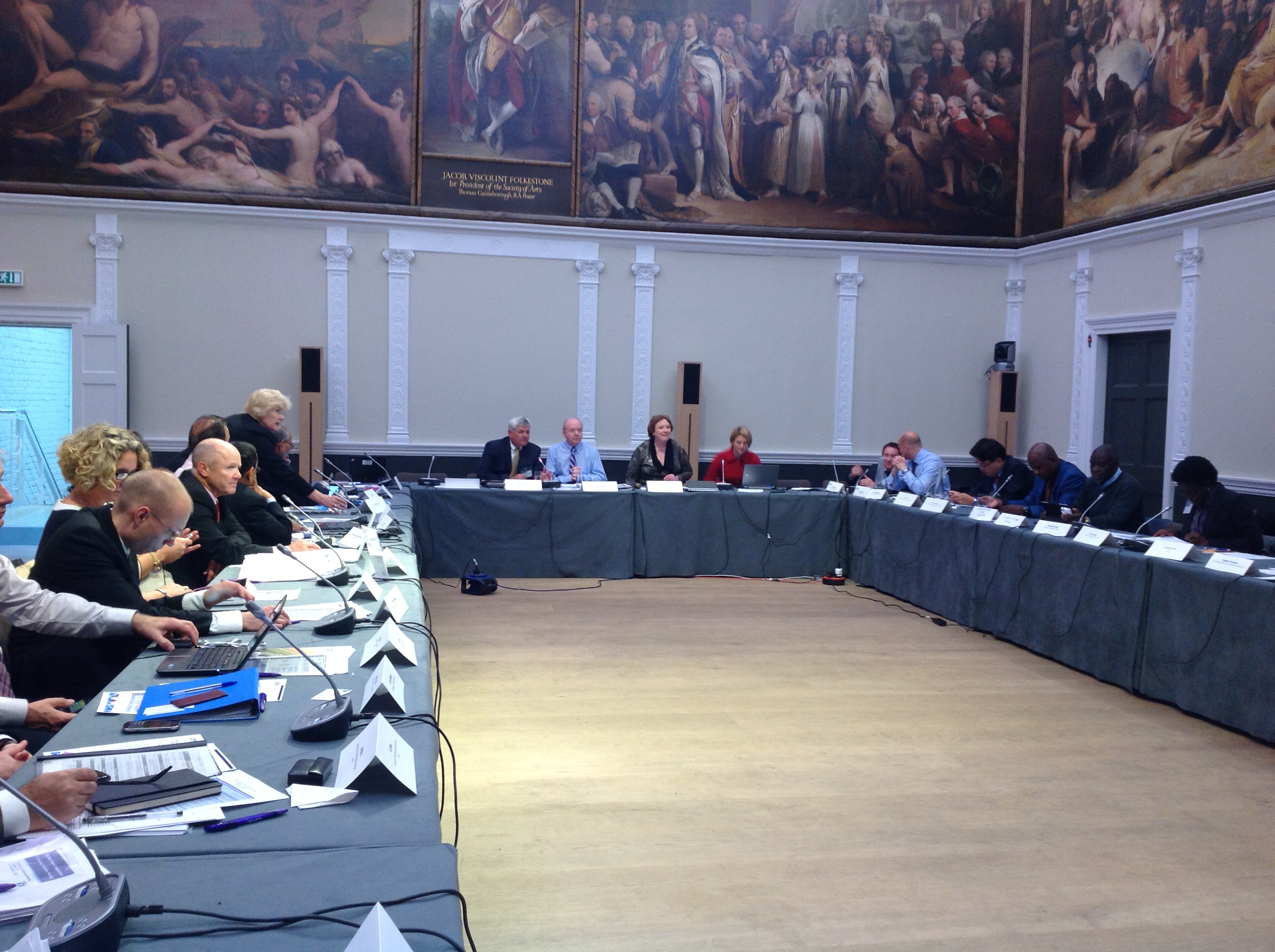The International Federation of Accountants (IFAC), the global organization for the accountancy profession, today announced the election of Warren Allen, of New Zealand, as president for a two-year term ending November 2014. The IFAC Council also approved the nomination of Olivia Kirtley, of the United States, as deputy president, a role previously held by Mr. Allen.
“Ours is a global profession—in fact, probably the only truly global profession,” said Mr. Allen. “We have much to celebrate, but there are still many demands to be met. I am completely committed to meeting these demands—to working with the boards and committees, IFAC member bodies, and IFAC’s exceptional management team and staff to deliver on all of the priorities contained in the strategic plan.”
Mr. Allen has served on the IFAC Board for six years. He was elected deputy president in 2010, and served as chair of the Planning and Finance Committee, which leads the development of IFAC’s strategic plan. He is executive director and recently retired partner of Ernst & Young New Zealand and is a past president and Life Member of the New Zealand Institute of Chartered Accountants. He previously served on IFAC's Education Committee (now the International Accounting Education Standards Board) for over 10 years, including as chair from 1998 to 2004.
Ms. Kirtley will serve as deputy president for a two-year term and also take the role of chair of the Planning and Finance Committee. She joined the IFAC Board in 2007, and has chaired the Governance and Audit Committee. Ms. Kirtley is a non-executive director for U.S. Bancorp, Papa John’s International, Inc., and ResCare, Inc. She has also served as chair of the American Institute of Certified Public Accountants (AICPA) and of the AICPA Board of Examiners. For more information on Olivia Kirtley, see her biography.
“As the world continues to face the effects of the sovereign debt and financial crises, and the accountancy profession continues to play its role as a valued leader in the development of strong and sustainable organizations, financial markets, and economies, the experiences Warren and Olivia bring to IFAC and to the accountancy profession are indispensable,” said Göran Tidström, outgoing president of IFAC. “Warren’s experience on the Education Committee and his service as deputy president and as chair of IFAC’s Planning and Finance Committee will serve IFAC well, and Olivia’s experience as a professional accountant in business and corporate director will bring new perspectives to the role. In addition, I am personally very gratified that we have appointed the first female deputy president of IFAC.”
New Board Members Elected
The IFAC Council meeting also included the election of six new members to the IFAC Board: Carol Bellringer (Canada), Norunn Byrkjeland (Norway), Dr. Yugui Chen (China), Pamela Monroe Ellis (Jamaica), Dr. In-Ki Joo (South Korea), and Russell Loubser (South Africa). The IFAC Council also re-elected Jacques Potdevin (France) and Marta Rejman (UK). These additions and re-elections add to the diversity of the IFAC Board—in gender, geography, and professional experience.
IFAC Admits New Members
Six new associates were admitted to the organization: the Albanian Institute of Certified Accountants, the Association of National Accountants of Nigeria, the Institute of Professional Auditors (Russia), the Ordre National des Experts Comptables et des Comptablies Agréés du Togo, the Institute of Certified Public Accountants of Rwanda, and the Ordem Dos Tecnicos Oficiais dos Contas (Portugal) were admitted as associates. Two existing associates were admitted to the organization as members: the Association of Accounting Technicians (UK) and the Mongolian Institute of Certified Public Accountants. Additionally, IFAC officially granted the Pan African Federation of Accountants Recognized Regional Organization status. For a full listing of IFAC members, see the membership section of IFAC’s website.
Approves Strategic Plan 2013-16
As part of the Council Meeting, IFAC’s strategic plan for 2013-16 was approved. The theme of the plan, Leading the Way, signifies IFAC’s intent to solidify its position as the global voice of the accountancy profession and to take on an increased leadership role on key global initiatives.
The plan highlights IFAC’s responsiveness to the major global regulatory shifts that will continue to shape the profession in the coming years. It will continue to focus on its core activity: development, adoption, and implementation of high-quality international standards. In addition, it will continue its focus on improved public sector financial reporting and integrated reporting, and enhance its focus on regulation and public policy. It will continue to take an inclusive approach, with an emphasis on capacity building. And finally, it will pursue a sustainable funding model.
To download the plan, see Strategic Plan for 2013–2016.
About IFAC
IFAC is the global organization for the accountancy profession, dedicated to serving the public interest by strengthening the profession and contributing to the development of strong international economies. It is comprised of 173 members and associates in 129 countries and jurisdictions, representing approximately 2.5 million accountants in public practice, education, government service, industry, and commerce.
# # #
Note to Editors – IFAC Board Members November 2012-November 2013:
Warren Allen (President)
Olivia Kirtley (Deputy President)
Carol Bellringer,* Canada
Jelil Bouraoui, Tunisia
Norunn Byrkjeland,* Norway
Ramon Casals, Spain
Dr. Yugui Chen,* China
Pamela Monroe Ellis,* Jamaica
Ana Maria Elorrieta, Brazil
Rachel Grimes, Australia
Ahmadi Hadibroto, Indonesia
Robert Harris, United States
Robert Hodgkinson, United Kingdom
Prof. In-Ki Joo,* Republic of South Korea
Japheth Katto, Uganda
Russell Loubser,* South Africa
Jacques Potdevin,** France
Ganapathy Ramaswamy, India
Marta Rejman,** United Kingdom
Makoto Shinohara, Japan
Masum Turker, Turkey
Steven Vieweg, Canada
* New IFAC Board members as of November 2012
** IFAC Board member reappointed for a second term in November 2012




